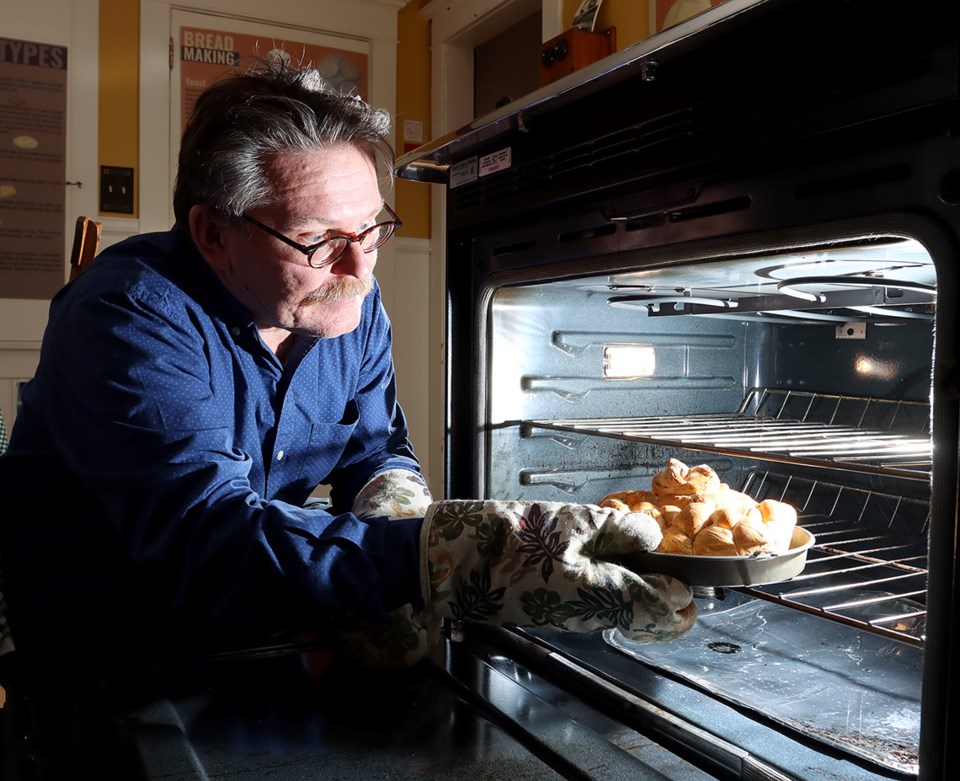When James Russell opened the first bakery in Coquitlam’s Maillardville neighbourhood in the early 1920s, it was a bit of a coming-of-age milestone for the city.
Traditionally a solo endeavour done in the home kitchen, being able to walk down the street to purchase a ready-baked loaf — or even have it delivered to your doorstep — was a sign life in the eastern reaches of the Vancouver area that was becoming busier, more urban.
Coquitlam’s relationship with bread is the focus of a new exhibit at Mackin House Museum that runs until June.
Exhibit manager Markus Fahrner said bread is often the dough that binds.
“So many cultures have bread,” he said. “It brings all of us together.”
Conversely, a lack of bread can be a harbinger of bad times.
“If you don’t have bread anymore, you are down in the dumps,” Fahrner said.
Through information panels, interactive displays, recipes and even a chance to knead dough, Breaking Bread examines the food staple’s role in Coquitlam’s growth and its contribution to the city’s diversity.
Bread is such a constant, Fahrner said, it’s easy to take it for granted.
“Bread ties generations together,” he said. “You remember your granny baking bread. It’s one of the strongest family traditions we have.”
The industrialization of bread production, with mills to grind grain into flour and bakeries to turn out loaves by the dozens, hundreds or thousands, also freed up time for other pursuits that could contribute to a community’s economic and cultural evolution.
Even the burlap sacks that were used in transporting the flour to the bakeries played a role, as during hard times they would be washed and repurposed into undergarments and other items of clothing.
By 1927, Russell had expanded his operation to a larger location, with state-of-the-art equipment, at the corner of Brunette Avenue and Marmont Street, and his bread was delivered throughout Maillardville.
As well, another large-scale bakery in New Westminster, Shelley’s 4X, was extending the reach of its delivery service into the city.
Fahrner said as Coquitlam grew, attracting more diverse populations to work at its lumber mills, bread helped bridge the cultural divide as families brought the breads they knew and grew up with to share at social and community occasions.
Bread helps us realize we’re not as separate as we think, Fahrner said. “It’s a beautiful unifier. That’s the strength and power of bread.”
To that end, the exhibit’s special baker-in-residence, Delali Adiamah, will be conducting baking workshops and tastings of breads from her native Ghana from Feb. 6 until April 28.
But bread’s good times may not last, Fahrner cautioned.
The impacts of climate change and even conflicts like the war in Ukraine are ravaging grain production and supply chains, threatening our food security.
“It’s not guaranteed we’ll have it forever.”
Breaking Bread at Mackin House opens Saturday (Jan. 28) with a reception from 7 to 9 p.m., featuring a DJ and refreshments by Mariner Brewing.


